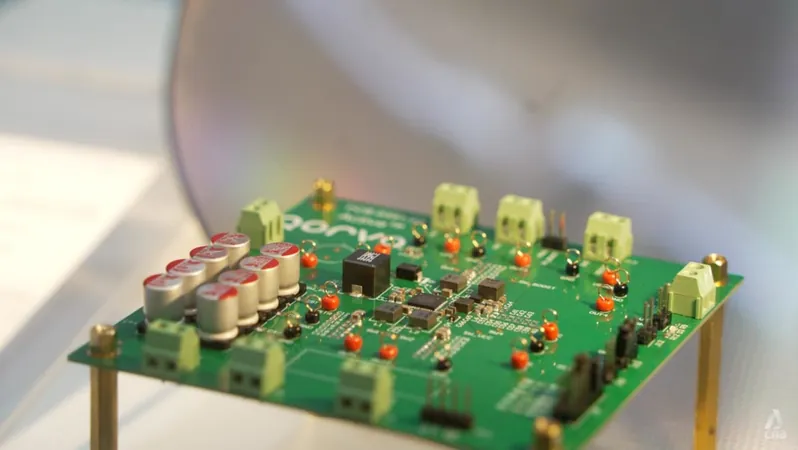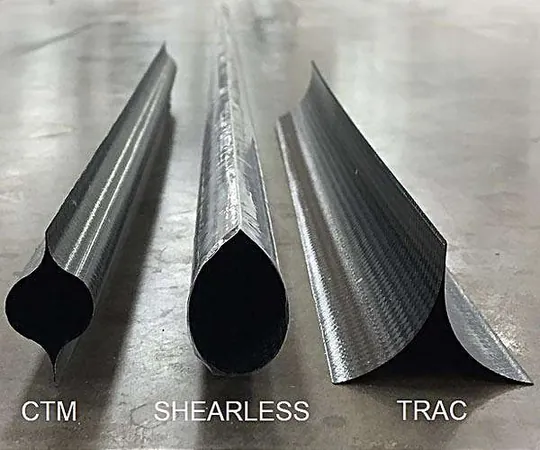
Vietnam Leverages Young Talent to Become a Semiconductor Powerhouse - Will It Succeed?
2024-11-18
Author: Mei
HANOI: While Vietnam may not yet rival countries like Malaysia in semiconductor production, it is quickly capturing the attention of major industry players. The country has emerged as a potential haven for semiconductor companies seeking a skilled workforce, thanks largely to its youthful demographics and growing education initiatives.
Global semiconductor giants, including Intel and Amkor, have established operations in Vietnam, lured by the promise of a vibrant talent pool. The Vietnamese government has recognized this opportunity and is implementing reforms and incentives to attract even more companies to set up shop.
With bold ambitions, Vietnam aims to build a comprehensive semiconductor ecosystem over the next 25 years, training at least 10,000 engineers annually to meet burgeoning industry demands. "We have abundant sources of talent, and we are very ready to join the supply chain," stated Dr. Chu Duc Trinh, rector of the University of Engineering and Technology at Vietnam National University in Hanoi. He emphasized that "this is a rare opportunity" as the global semiconductor supply chain undergoes significant transformations.
South Korean tech titan Samsung has already capitalized on this talent pipeline. The company has identified ten top university graduates from northern Vietnam to participate in a master's degree program focused on semiconductor training, covering all aspects of the supply chain, from microchip design to production. These graduates will be employed at Samsung's semiconductor facilities in South Korea upon completion of their studies.
"The term 'semiconductor' is being discussed increasingly in Vietnam," remarked Nguyen Thi My Duyen, one of the students in the program. "This is a good opportunity not just for me, but for Vietnam as a whole."
According to Kay Chai Ang of SEMI Southeast Asia, Vietnam is rapidly becoming a semiconductor powerhouse, poised to contribute significantly across the value chain. Projections indicate that the country's semiconductor market could reach an impressive US$18.23 billion by 2024, driven by strategic investments and a vision for a robust semiconductor ecosystem by 2050.
Vietnam's unique position is further enhanced by its amicable relations with both China and the United States. As these two economic giants remain locked in a tumultuous trade conflict, Vietnam has become an attractive alternative for businesses seeking stability and growth in the semiconductor sector.
However, challenges remain. Investors continue to express concerns over bureaucratic bottlenecks that have hindered other industries in the country. Administrative reforms and sustainable energy policies are critical necessities for a thriving semiconductor ecosystem. "Investors want a fast and clear investment process," noted Nguyen Chi Dung, Vietnam’s Minister of Planning and Investment. "If it takes years to invest, they will look elsewhere."
Promisingly, about 50 top-tier semiconductor firms have already set up operations in Vietnam, and major players like Nvidia are making their way into the market. The government is actively exploring measures to streamline investment procedures and offer stronger incentives to foreign companies.
Despite the current lack of semiconductor fabrication plants—where raw materials are transformed into essential chips—foreign corporations have begun establishing a presence in Vietnam focused on chip design, assembly, testing, and packaging. Last year, Amkor inaugurated a $1.6 billion state-of-the-art chip facility in Bac Ninh province, signifying its commitment to Vietnam. Additionally, Besi, a Dutch semiconductor equipment manufacturer, recently unveiled its new plant in Ho Chi Minh City.
As Vietnam aspires to become a key player in the global semiconductor arena, local companies are also striving to make their mark. The country's leading tech firm, FPT, is establishing a chip testing facility in Hoa Lac High-tech Park, concentrating on power management integrated circuits and planning to announce its own AI chip design soon. "Our big dream is to be the leading integrated circuit design company in Southeast Asia," said Nguyen Vinh Quang, founder and CEO of FPT Semiconductor. "We hope to transition from exporting rice to exporting chips in our lifetime."
Can Vietnam truly fulfill its ambition of becoming a semiconductor powerhouse? Time will tell, but the combination of government support, a young workforce, and strategic partnerships signals a promising future in the technology landscape.



 Brasil (PT)
Brasil (PT)
 Canada (EN)
Canada (EN)
 Chile (ES)
Chile (ES)
 España (ES)
España (ES)
 France (FR)
France (FR)
 Hong Kong (EN)
Hong Kong (EN)
 Italia (IT)
Italia (IT)
 日本 (JA)
日本 (JA)
 Magyarország (HU)
Magyarország (HU)
 Norge (NO)
Norge (NO)
 Polska (PL)
Polska (PL)
 Schweiz (DE)
Schweiz (DE)
 Singapore (EN)
Singapore (EN)
 Sverige (SV)
Sverige (SV)
 Suomi (FI)
Suomi (FI)
 Türkiye (TR)
Türkiye (TR)